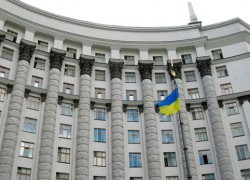
A case study
Today there are two opposing energy-consumption trends in the world. Firstly, there is a cost minimization trend, intended to reduce spending on fuel and energy resources, labor and capital when a certain reasonable level of ultimate consumption is ensured. Secondly, there is a trend that originates from the ideology of economic growth (the self-expansion of capital) when an increase in the amount and type of ultimate consumption is connected with the growth of energy consumption. The second trend is more typical of a Western society.
Currently, the major problem of Ukraine’s economy and its various sectors is the high energy intensity level of GDP, which is 2.6 times higher than the average power consumption rate of GDP in the developed countries. According to the state statistics service, energy intensity is 0.50 kg of oil equivalent per $1 of GDP, taking into account real purchasing power parity (PPP), with the average rate in the world being 0.21 kg (0.13 in Denmark, 0.22 in the United States; and 0.49 in Russia). The available stocks of Ukrainian natural gas, the production costs of which are about UAH 300 per 1,000 cubic meters, total 22.4 billion cubic meters. One can easily imagine how Ukraine will benefit if it introduces energy saving and energy efficient technologies!
Two absolutely necessary and sufficient conditions for the social and economic modernization of all spheres of the state’s activity are the building of a civil society, and efficient power and governance. It is also necessary to change the public consciousness – through complex psychological processes, to bring about the emergence of economical and energy-efficient thinking. As a result – economical, energy-saving-oriented behavior, with the ultimate goal of energy efficiency in everything, should become an integral part of human life and routine. Special energy saving training programs should be developed for the public, depending on age groups. The special programs should contain the main components of energy-efficiency-oriented motivation, and energy responsibility.
The innovative development of society is the basis of a fundamental change in living standards and the quality of life in Ukraine. New knowledge, mainly in the creation of new information technologies (a new branch of economic activity has emerged — the economy of knowledge) has been added to the traditional factors of production – land, capital and labor.
Today’s challenges have been determined by such factors as:
- Competitiveness, politically motivated under conditions of limited energy and natural resources.
- Limitations on public expenditures (the balance of budgets amid an aging population).
- The complexity of social systems. The sophistication of relationships between systems of various types: centralized and regional, public and private.
- The role of scientific and engineering competence. Scientific and technical knowledge becomes a strategic resource.
These are the major factors in improving living standards.
The organizational and economic mechanism of the town of Slavutych could serve as an example of the way to move in that direction, as it includes a major component – the Public Council for the Development of the Town. A broad socially active public is involved in the creation of a local democracy model, which is being implemented through various forms: public meetings, municipal hearings, council meetings, live television sessions with the town’s government, top management, institutions and organizations, as well as business games. This motivates and engages the public in interest-based and fruitful cooperation, ensuring that a jointly chosen strategy becomes part of the life of everyone in the local community…
You can read full article at the journal “Terminal: oil review” №45(579) 17 Nov 2011



